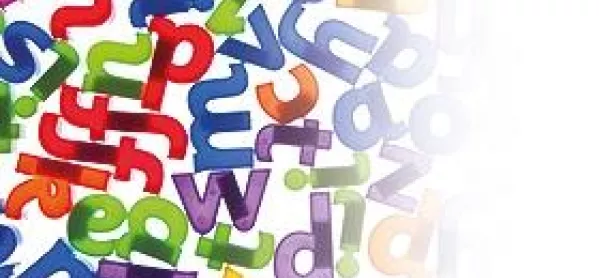Six per cent of student teachers report having a disability - and many of those may be dyslexic - a study has found.
The results are significant in light of Graham Donaldson’s report on teacher education, which called for higher teacher entry standards in literacy and numeracy.
Mr Donaldson told TESS earlier this year that the recommendation was not prompted by concerns about teachers with dyslexia but was about ensuring they had an “in-depth understanding” of how language works so they could help pupils with such problems.
“The failure of teachers as they qualify is not having a good understanding of the factors which lead to children themselves having a difficulty,” he said.
But the research is bound to raise concerns that dyslexic teachers may be hampered in their ability to pick up such problems in pupils.
Sue Ellis, reader in literacy and language education at Strathclyde, said primary teachers needed a “flexible and fluent” grasp of literacy and language and had to be quick to spot “odd” spelling patterns among the many “normal” spelling errors children make. Teachers of P1-3 classes in particular must be able to analyse errors in young children’s reading and act instantly, she said.
Careers advisers should also be clear about the literacy demands of primary teaching so youngsters could make informed decisions about their careers, she added.
But Dyslexia Scotland’s education adviser, Margaret Crombie, suggested that teachers who were dyslexic may have more empathy with children who experience learning difficulties.
“Some of the most appropriate teaching I have seen for dyslexic learners has come from dyslexic teachers as they know all the strategies and approaches to put in place to enable their children to succeed in their learning,” said Dr Crombie.
There was, however, an expectation on the part of other teachers and parents that teachers’ spelling and writing should be exemplary. “If you’re dyslexic, that could be very hard,” she said.
Dyslexia exists on “a continuum”, and not all those who disclose a disability are severely affected, she said. “Teachers just need to know their limitations and know when to have their material checked or ask for help. With Smart Boards and interactive technology, materials can be prepared in advance and checked thoroughly.”
The findings, part of research at Strathclyde University’s School of Education, come from a sample of 256 first-year BEd students at Strathclyde and Glasgow universities.
Geri Smyth, who led the research, said it was very difficult to measure accurately the percentage of student teachers who may have a disability because a large number of those surveyed would not disclose this information. This suggests the proportion with disabilities - including dyslexia - may be significantly higher.
Dr Smyth stressed that the findings, presented last week at Teaching Scotland’s Future, a conference organised by Glasgow and Strathclyde universities’ joint Teacher Education and Teachers’ Work Research Group, was a “snapshot” of student teachers and should be seen in the context of wider research into the diversity of teacher education.
chris.small@tes.co.uk
KEY FIGURES
Sample of 256 first-year BEd students at Strathclyde and Glasgow Universities
- 92% female
- 96% UK nationals
- 74% school leavers
- 8% entered from wider access programmes
- 6% disclosed a disability
Source: Diverse teaching in Scotland’s Diverse Future: `These students all seem the same’ (research by Glasgow and Strathclyde Universities).


